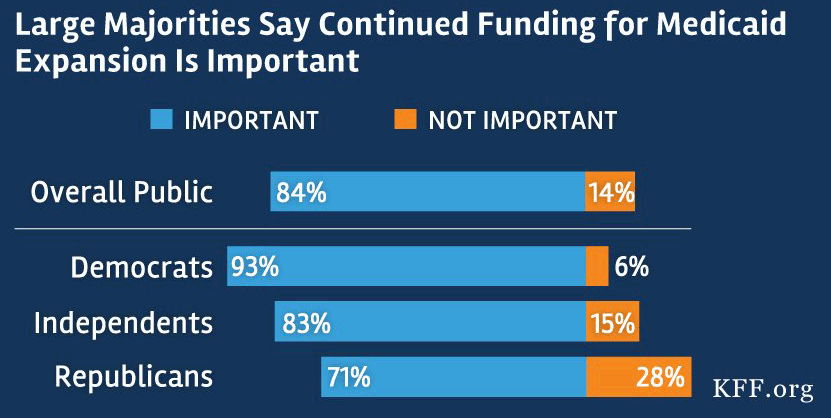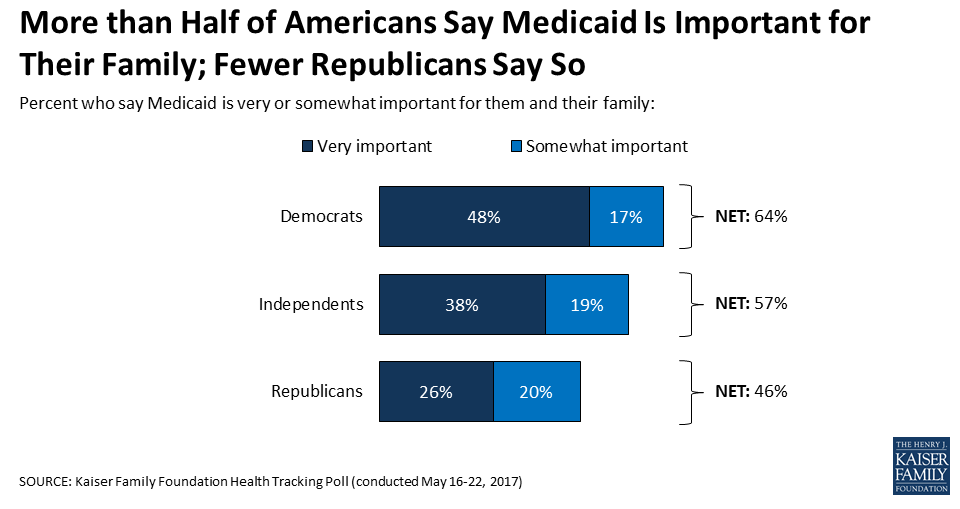Aaron Carroll points me to this surprising result from a new Kaiser survey:

Is it really true that 71 percent of Republicans think it’s important to keep ACA’s Medicaid expansion? Yes it is, though with less intensity than Democrats and Independents. Is it because they’re confused and think this is about Medicare? Nope. The question explicitly starts out, “Now thinking specifically about Medicaid, the program for certain low-income adults and children…”
The answer probably lies here:

Even among Republicans, nearly half say Medicaid is personally important to their family. If that’s the case, it’s not really surprising that 71 percent support Medicaid expansion. That includes all the Republicans who think it’s personally important plus another sizeable chunk who have one or more friends who depend on it. (Plus, presumably, some who are unaffected by Medicaid but support it out of ordinary human decency anyway.)
These numbers may seem surprisingly high, but they’re really not. In the Kaiser poll, among all party IDs, 58 percent say that Medicaid is personally important to them and their families. In the US there are, roughly speaking:
- 68 million Medicaid enrollees
- 85 million families
If, say, there are 35 million families with one Medicaid enrollee; 10 million with two; and 4 million with three or more; that’s a total of 68 million Medicaid enrollees spread out among 49 million families. And that’s 58 percent of all families.
It’s a big number because Medicaid is the most widely used major benefit program in existence.1 Most people don’t know this.
1I think. It’s more widely used than Social Security (61 million), Medicare (55 million), food stamps (44 million), unemployment insurance (6 million at the height of the recession), the home mortgage deduction (about 60 million), 401(k) plans (about 52 million), IRAs (about 60 million), EITC (26 million), and TANF (about 4 million). Am I missing any major programs?
There is one fly in this ointment: employer health insurance. About 155 million people receive medical coverage through their employers, and they all benefit from the tax advantages of employer health plans. If you count this, then Medicaid is only the second most widely-used benefit program.


















